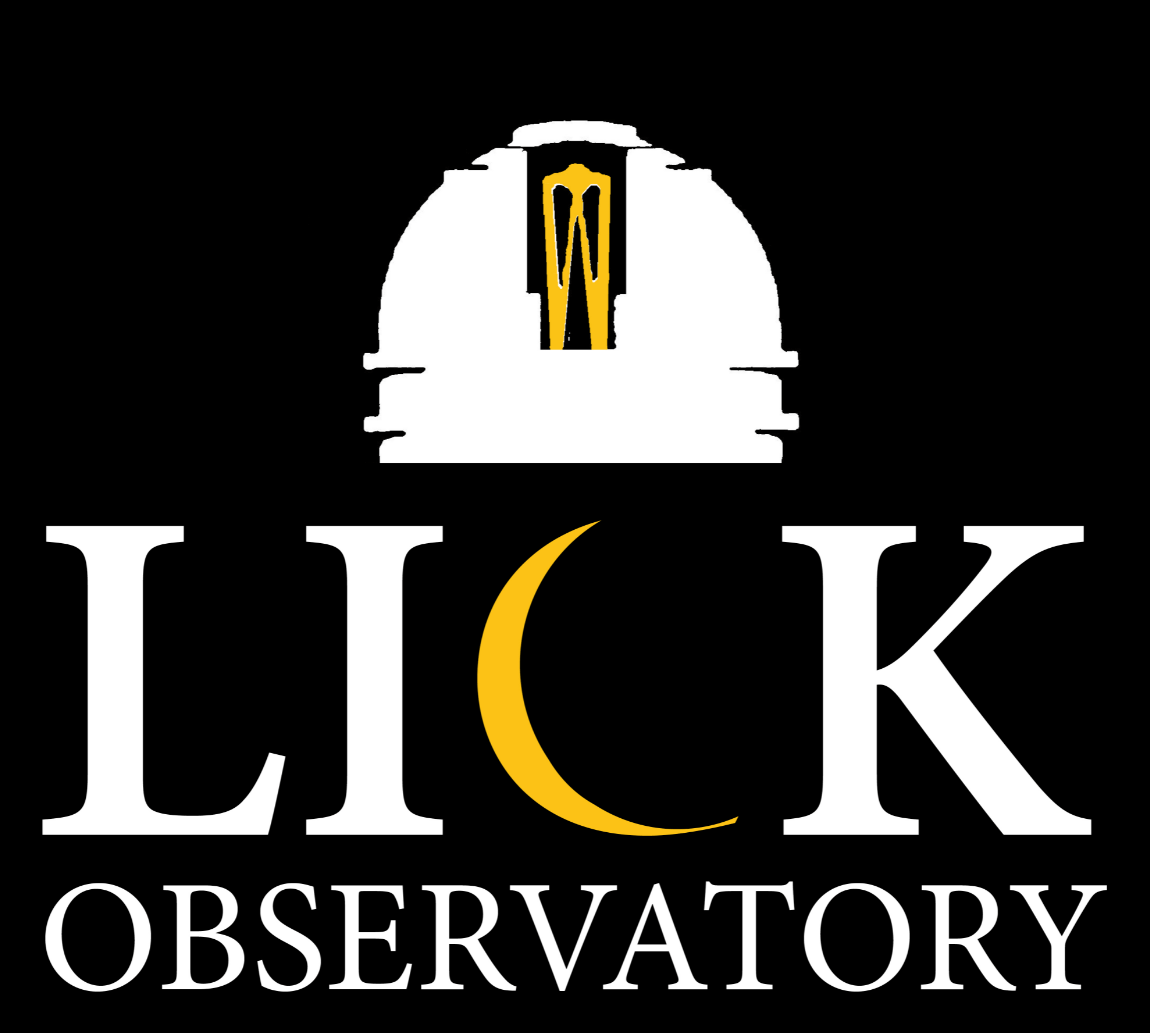Tonight’s Host: Dr. Jon Rees
| 7:00 pm | Doors Open | Brief Telescope Visits |
| 8:00 pm | Concert | |
| 9:00 pm | Science Talk, Lecture Hall | Telescope Viewings |
| 10:00 pm | Science Talk (repeated), Lecture Hall | Telescope Viewings |
| 12:30 am | Doors Close |
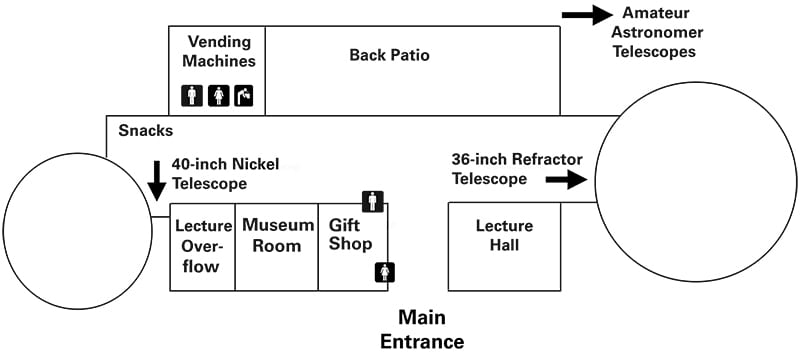
This Evening’s Events
Concert
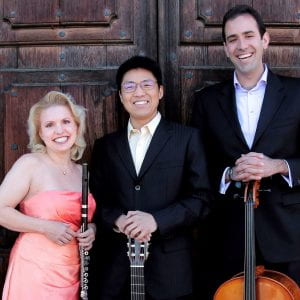
Science Lecture
(presented twice)
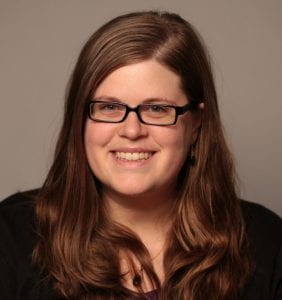
Tonight’s Telescopes & Objects
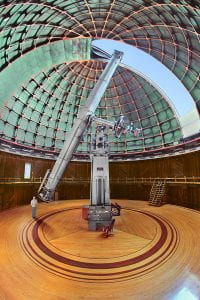
Lick Observatory’s 36-inch Great Refractor saw “first light” in 1888. At the time, it was the largest refractor telescope in the world. It is an enduring memorial to James Lick’s philanthropy and his final resting place.
For nearly 300 years after Galileo first turned a telescope toward the heavens it was believed that the largest planet in our solar system, Jupiter, had just four moons. In 1892, using the Lick’s 36-inch Great Refractor, Edward Barnard discovered a fifth moon, the much fainter Amalthea, the last moon of any planet to be discovered without the aid of photography, electronic detectors or space-based telescopes.
The 36-inch telescope will show you an interesting astronomical object of the telescope operator’s choosing. This may be a globular cluster of stars, a binary star, or a galaxy.
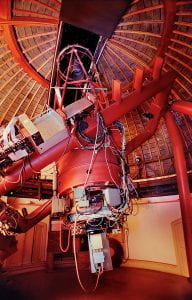
The Nickel 40-inch Reflector, named for philanthropist Anna Nickel, was designed and built in the Lick Observatory Technical Facilities at UC Santa Cruz and completed in 1979. The 40” diameter mirror of this modern telescope makes it the third most powerful telescope on Mount Hamilton.
Tonight you will view NGC 7331, a galaxy in the constellation Pegasus.
Telescope Operators:
36-inch Great Refractor
Rick Baldridge | Keith Wandry
40-inch Reflector
Murali Balasubramaniam
40-inch Control Room
Patrick Maloney
![]() Share tonight’s experience on Social Media: #LickObservatory @LickObservatory
Share tonight’s experience on Social Media: #LickObservatory @LickObservatory
Additional Viewing Opportunities – Weather Permitting
Amateur astronomers have telescopes set up behind the main building. They will enjoy showing you other objects in the sky.
The Gift Shop is open tonight from 7:00 pm to 11:00 pm.
Join Friends of Lick Observatory
Support Lick’s science, education, history, and future
